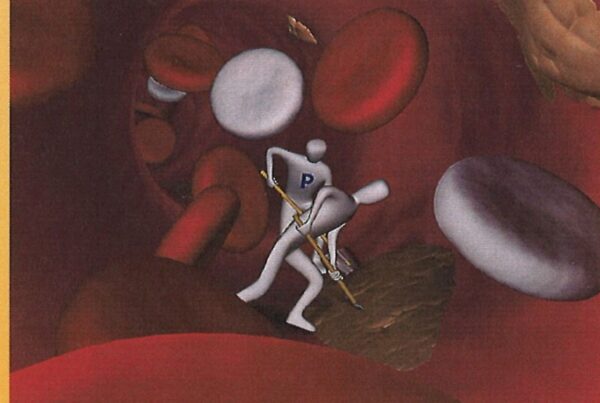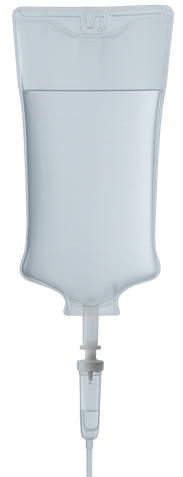New Study Indicates Vitamin D Deficiency Increases Opioid Risks
According to a recent study published in the journal Science Advances conducted by researchers at Massachusetts General Hospital, vitamin D deficiency increases risk of patients becoming addicted to opioids and contributes to the severity of opioid withdrawal. The study reported on both research in mice and in humans. Add this to the many reasons to have vitamin D levels tested and supplement as needed.
Human Studies on Vitamin D deficiency and Opioid Addiction
After analyzing human data from the National Health and Nutrition Examination Survey, the researchers found that those with vitamin D deficiency increased the likelihood that patients would become addicted to opioids and more likely to be diagnosed with an opioid use disorder than those with sufficient vitamin D levels.
Though vitamin D can be found in foods, it is very difficult to get adequate vitamin D from diet. The biggest source is sun exposure on the skin, which than causes the body to make vitamin D. Prior research had also discovered that exposure to the sun’s UVB rays causes the body to produce endorphins, the body’s natural opioids and feel good hormones. Vitamin D deficient people may addictively seek out the sun for its enhancement of both vitamin D levels and mood.
Animal Studies of Vitamin D Deficiency and Opioid Addiction
In studies with mice, vitamin D deficient mice and mice with normal vitamin D levels were compared. All groups of mice were conditioned to morphine at different doses. The vitamin D deficient mice exhibited opioid-seeking behavior at all dosage levels while the mice who were vitamin D sufficient did so only at the highest dosage level. When the vitamin D deficient mice had their levels restored to normal, opioid seeking behavior became consistent with the mice whose levels were initially normal. This indicates that the negative effect of vitamin D deficiency on opioid seeking could be reversed.
Development of tolerance to opioids, which then requires higher dosages to get the same effect, was found to be faster in vitamin D deficient mice. Vitamin D deficient mice also exhibited more severe withdrawal symptoms than mice with normal vitamin D levels. Correcting vitamin D levels in deficient mice alleviated the withdrawal symptoms.
Research Supports Vitamin D Supplements for Prevention and Treatment of Opioid Addiction
The researchers concluded that correction of vitamin D deficiency “…Could be beneficial in the prevention and treatment of opioid addiction, especially considering that VitD is generally inexpensive, accessible, and safe”.
Increasing your vitamin D levels is one of the most important things you can do to promote health. Vitamin D is safe, affordable, available over the counter and also administered via intravenously (IV) in specialized clinics. therapy involves the intravenous administration of nutrients such as vitamins, minerals, and amino acids. These natural medicines are sterile, safe, and in their most bioavailable forms. So, 100% absorption of the active ingredients are immediately available for utilization by your body.
IV nutrition therapy can be used to help with withdrawals from drugs, support the immune system, promote energy production to relieve fatigue, normalize blood pressure, treat anxiety and chronic depression, relieve PMS symptoms and menstrual cramps. To optimize vitamin D levels, it’s best to have your blood levels checked through a simple blood test. However, vitamin D toxicity from taking too much is extremely rare. Chances are, if you do not spend much time outdoors with skin exposed to the sun and you are not supplementing, your vitamin D levels are most likely insufficient. Being older, having dark skin, using sunscreen, living further away from the equator and certain medications also reduce vitamin D synthesis.
LotusRain Addiction Treatment
Dr. Reese, prior to becoming a Naturopathic physician, was a therapist that specialized in withdrawal and comprehensive support for addictions and dual diagnosis cases. She frequently uses Amino acid, Detoxification and Glutathione IV’s to support patients experiencing withdrawal symptoms. Glutathione is known as the “Mother of all Antioxidants” because of its power to eliminate free radicals from the body, thus detoxifying. 
Doing a series of Detox IVs at LotusRain Naturopathic Clinic can help with withdrawal symptoms and side effects after stopping a drug or alcohol, avoid the need for a replacement drug and help curb cravings. In addition, these IVs address biochemical imbalances in the brain leading to a person’s ability to make better choices in the future. The great advantage of therapy is that nutrients bypass the digestive system and go straight to the receptors in the brain. Micronutrient deficiencies can affect the brain leading to depression, anxiety, tension and inability to cope. Correcting these can bring the person back to a feeling of well-being and avoid the need for addictive substances.
Patients report feeling sharper and clearer, feeling energized and more alive. Their outlook becomes more positive and optimistic and they report being content and able to dream and picture a future; something remarkable they were not able to do before.
The LotusRainteam also works with multiple in-patient treatment facilities providing supplement, nutritional and intravenous treatment options to support the patients sobriety success. If you would like to talk to someone about ways to detox from addiction, please set an appointment with Dr. Reese HERE.
********Content Curated courtesy of Cindy Perlin – a licensed clinical social worker, certified biofeedback practitioner and chronic pain survivor. Also the founder and CEO of the Alternative Pain Treatment Directoryand the author of The Truth About Chronic Pain Treatments: The Best and Worst Strategies for Becoming Pain Free.







